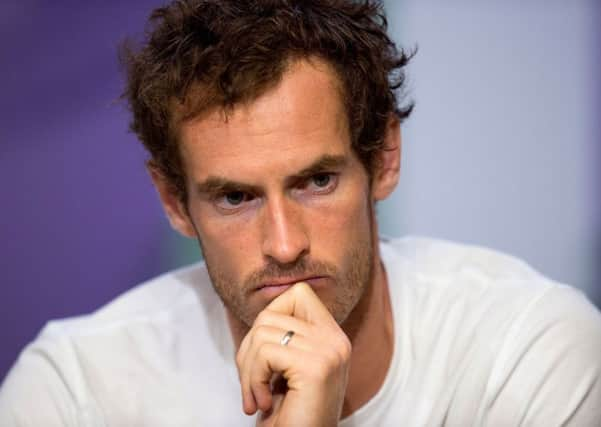Can surgery resurrect Andy Murray's career?


But, having revealed that the chances of a successful outcome are not as high as he would like, the question everyone is asking is whether going under the knife will signal the end of his playing career or succeed in resurrecting it. Everyone, no doubt, including Murray himself.
An operation would likely see him out of action until the summer at the earliest and, given how long it took Murray to really find his groove on his return to the Tour following back surgery, history would suggest that it would then take a prolonged period of time for him to battle back to anywhere near his most competitive. But without knowing everything about his condition and the severity of the prognosis, no-one outwith Murray’s close circle of family and friends, and the medical staff, can say anything with any degree of certainty.
Advertisement
Hide AdAdvertisement
Hide AdOf course, if surgery was successful the former world No 1 could return but whether he could again challenge for the top titles or ever again reach the peak of the rankings is debatable.
If recent mutterings are true that might not bother him as much as people might assume. He admitted earlier this week that trophies are no longer his only motivation. He simply wants to play and doesn’t mind “if it’s No 30-in-the-world level.”
With three grand slam title, two Olympic gold medals and a Davis Cup in the bag he has earned his place in the sport’s history books and the respect of those who understand the game and recognise the ability, endeavour, sacrifices and sheer force of will needed to take him to such heights. In the likes of Roger Federer, who is 36, and Rafa Nadal, at 31, there are examples of top players regaining form after lengthy injury-enforced lay-offs. But Murray’s style is vastly different to Federer’s and the fact that both Nadal and Novak Djokovic are facing their own ongoing struggles to coax their battle-weary bodies through the toils of the modern tennis season, demonstrates just how difficult any road to recovery will be.
Murray knows it. It was evident in the melancholic tone of his Instagram posting earlier this week. In that message the Scot addressed the reasons for pulling out of the Brisbane International tournament and tugged at heart strings as he spoke about how devastating it was to have to sit on the sidelines.
He revealed that “the little kid inside me just wants to play tennis and compete..I genuinely miss it so much and i would give anything to be back out there.”
He added that the past six months - he has not competed since exiting Wimbledon in July - had reminded him just how much he loves the game. “Everytime I wake up from sleeping or napping I hope that [the hip is] better and it’s quite demoralising when you get on the court it’s not at the level you need it to be”.
He took some extra time to ponder whether he could delve deep enough to make it through an arduous two weeks of a grand slam event and this morning he decided he couldn’t. Those who know him will testify that if there was a way, there would definitely have been the will. Which is why his departure for London has set so many alarm bells ringing.
But Lleyton Hewitt and his high energy, combative playing style affords a glimmer of optimism for Murray fans to cling to.
Advertisement
Hide AdAdvertisement
Hide AdThe Aussie, former Wimbledon champion had surgery on both hips during his career and while he never won again at grand slam level, he did return to winning tournaments.
Murray has always been indefatigable and although downcast right now, he will not have abandoned all hope or surrendered all fight and, when he gets home and weighs up all his options, the risk of surgery may be worth it.
There are no guarantees but Murray has never been afraid to chase down seemingly lost causes and it could revitalise his career and serve up a few more golden years.
If not, simply enjoying a similar twilight to that of his friend Hewitt may prove to be enough for Murray and, presented with an alternative of him not playing at all, could be enough for his fans who are today fearing the worst.
